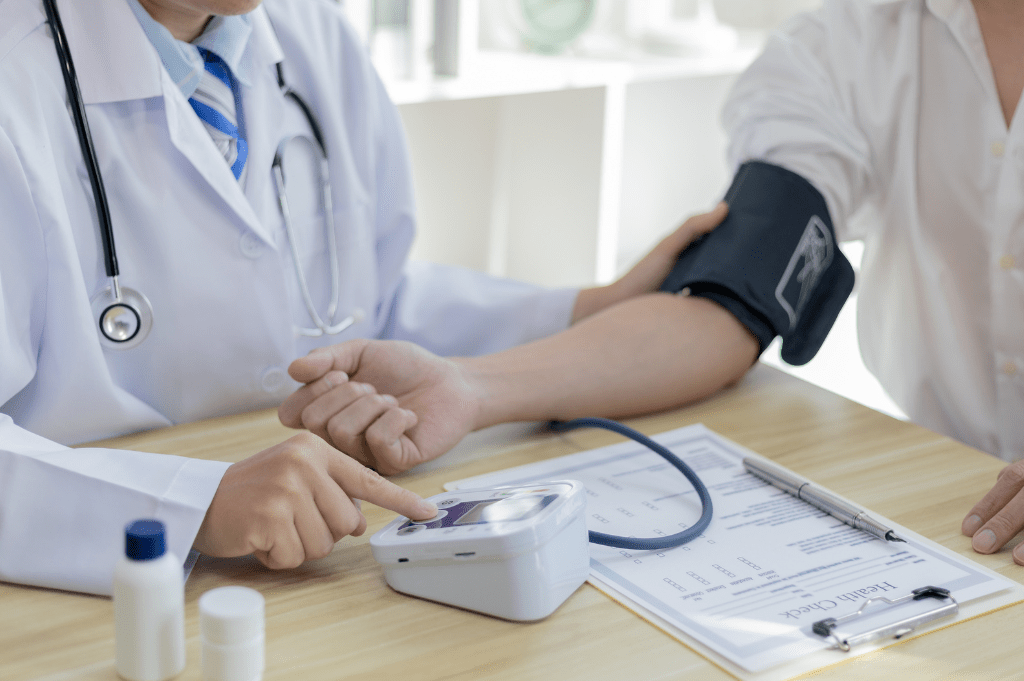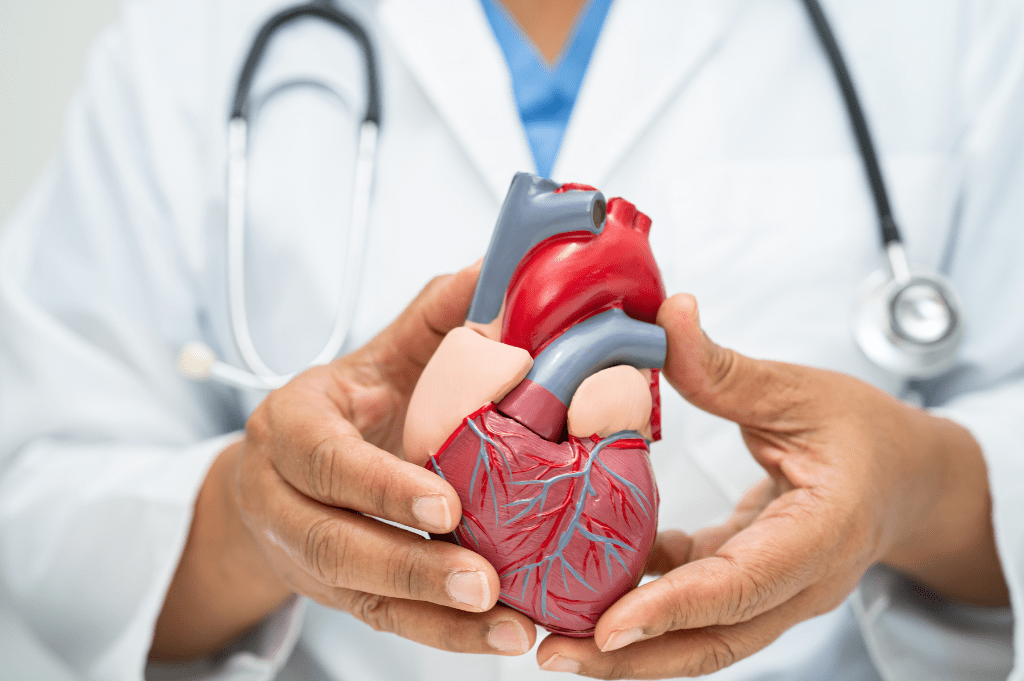
What Is a Cardiologist? Discover Your Future Career Path!
Learn more about cardiology and how to become a practicing specialist in this exciting medical field.
Cardiology is a popular specialization in the medical field. With heart disease being one of the leading causes of death worldwide, the demand for skilled cardiologists continues to rise.
Cardiology offers a challenging yet rewarding career path for students considering a medical career, with opportunities to make a life-saving impact in medicine. So, let’s explore how to become a cardiologist and answer the question: What is a cardiologist?
What Is a Cardiologist?
In short, a cardiologist is a doctor who is specially trained in finding, preventing and treating diseases of the cardiovascular system, which encompasses the heart and blood vessels.
From high blood pressure to heart failure, a cardiologist treats a wide range of conditions and cardiovascular issues, performing catheterizations, pacemaker implants and much more.
So, what are the different types of cardiologists?
- General Cardiologists: Diagnose and treat a broad range of heart conditions, from high cholesterol to heart valve disease.
- Interventional Cardiologists: Specialize in catheterized medical procedures to treat conditions such as atherosclerosis.
- Electrophysiologists: Diagnose and treat complex irregular heartbeats or arrhythmias using implanted pacemakers and other methods.
- Preventive Cardiologists: Focus on halting the onset of cardiac disease to prevent further damage to the heart.
- Pediatric Cardiologists: Specialize in treating heart conditions in infants, children and adolescents.
What Does a Cardiologist Do?
Cardiologists have a broad job description, with various day-to-day roles and responsibilities. Some of their responsibilities include reviewing patient charts and test results, prescribing medicine and other treatments for heart conditions, patient consultations, performing diagnostic procedures and minimally invasive procedures, and referring patients to other specialists, such as heart surgeons.
Cardiologists often collaborate with other healthcare providers during patient treatment and can pursue various subspecialties within cardiology. Many professionals are also active in academia and regularly attend lectures, participate in conferences and conduct medical research.
Common Heart Conditions Cardiologists Treat
As mentioned, cardiologists manage a wide range of heart-related conditions. Below are some of the common cardiovascular issues treated by cardiologists:
- Angina
- Arrhythmias
- Congenital heart defects
- Coronary heart disease
- Heart failure
- Heart valve disease
- High blood pressure
- High cholesterol
Importance of Cardiologists in Preventive Care
Preventive care is a key focus within cardiology – it helps lower the risks of heart conditions through early intervention. Cardiologists are essential in treating existing heart conditions and improving the quality of life for those at risk.
Cardiologists aim to prevent cardiovascular diseases by recommending lifestyle changes, such as diet and exercise, managing risk factors like diabetes and high blood pressure, and regularly monitoring heart health through check-ups.
Cardiologists all work towards the overall goal of reducing hospitalizations and preventing the progression and seriousness of heart diseases.



How to Become a Cardiologist: Step-by-Step Guide
Now that you know more about cardiology specialties and responsibilities, it’s time to find out how to become a cardiologist. Like all career paths in medicine, becoming a cardiologist can be a long and challenging process, encompassing approximately 14 years of training and education after high school. However, it is a rewarding career with various long-term benefits, like career progression and high earning potential.
Here are the standard steps to becoming a cardiologist:
- Undergraduate degree: Following high school, those seeking a career as a practicing physician often pursue an undergraduate degree, usually in a science or health-related field, such as biology or chemistry.
- Medical school: One of the most important steps to becoming a cardiologist is enrolling in a Doctor of Medicine (MD) program at an internationally accredited medical school. These programs usually last four years – five semesters of Basic Sciences (classroom and lab-based studies) and five semesters of Clinical Medicine rotations (on-site learning at hospitals, clinics and medical centers).
- Internal medicine/pediatrics residency: After graduating from medical school with your MD degree, individuals must complete an internal medicine or pediatrics residency program to be eligible for a cardiology fellowship. Both residencies last around three years, providing the skills and experience to pursue a career in cardiology.
- Cardiology fellowship: The final step is a three-year cardiology fellowship, which provides specialized training in diagnosing and treating cardiac diseases. Some fellowships may also offer sub-specialty training in areas such as interventional cardiology.
Skills Required to Become a Successful Cardiologist
Cardiologists require various soft and technical skills to be successful in this medical field. Some of the key skills include:
- Analytical thinking: Cardiologists must interpret test results and diagnose complex conditions to develop effective treatment plans. This requires analyzing data and making informed decisions based on this analysis.
- Cardiovascular anatomy and physiology expertise: It goes without saying that cardiologists must be experts in their specialty. They must have the skills to perform various procedures and the knowledge to correctly diagnose complex cases.
- Collaboration: Cardiologists regularly work with heart surgeons and other medical specialists. Therefore, they must collaborate with other medical professionals to maximize performance and efficiency in a fast-paced environment.
- Communication: Strong interpersonal communication skills are required to explain complex conditions and treatment plans to patients and other healthcare providers.
- Empathy: Cardiologists support and treat patients managing life-threatening health issues – they must be empathetic and responsive in order to understand their patients on an emotional level and provide impactful care.
Career Opportunities in Cardiology
While some cardiologists work in private practice, many work in hospitals, providing emergency and long-term care. They usually rotate in their subspecialty, working weekly in emergency intake and outpatient clinics.
Cardiologists also spend time in the laboratory, consulting other specialists and conducting research. They are often on call at night and on days off, highlighting the commitment required for a career in cardiology.
Due to the importance of cardiology specialists, and cardiovascular diseases being a significant cause of mortality worldwide, the demand for cardiologists continues to rise. Therefore, cardiologists have broad career opportunities in private and public settings, research institutions, non-profit organizations, and government agencies.
Cardiologist Salary and Job Outlook
With significant demand for cardiologists worldwide, driven by an aging workforce and increased awareness of cardiovascular diseases, the average cardiologist salary in the U.S. is quite appealing.
According to salary.com, the average annual salary for a cardiologist in the U.S. is $588,491 USD per year. This varies by experience, location and subspecialization.
Final Thoughts: Is Cardiology the Right Fit for You?
After reading about cardiology and learning how to become a cardiologist, it’s now time to evaluate whether this popular medical specialty matches your skills, interests and career goals.
If so, the next step is to find a medical school that can help you realize your potential in medicine and achieve your dreams. Excitingly, St. Matthew’s University School of Medicine (SMUSOM) offers a comprehensive MD program that is perfect for ambitious students seeking a supportive medical education.
In Basic Sciences, on our Grand Cayman academic campus, participants develop a foundational understanding of the human body and learn how to treat patients, prevent disease and promote healthy lifestyles. Successful students then progress into Clinical Medicine, when they undertake rotations in the U.S. (core and electives) and Canada (select electives).
Want to learn more about the SMUSOM student experience? Check out this video testimonial from a recent graduate:
Then invest in your medical career today by enrolling in the MD program at St. Matthew’s University here!
FAQs About Cardiology
To pursue a career as a cardiologist, individuals must complete an internal medicine or pediatrics residency after graduating from medical school. Like most residency training programs, matching into these programs can be competitive, so an eye-catching application, including research experience, a strong academic record and impressive letters of recommendation, is essential.
No, most cardiologists do not perform surgery. However, those specializing in interventional cardiology perform minimally invasive procedures like stent placements.
While cardiologists diagnose issues and treat heart conditions through prescription medicine, recommended lifestyle changes and other treatments, a cardiac surgeon performs hands-on surgical operations, such as valve repair.
Becoming a practicing cardiologist takes approximately 14 years after high school. This includes a four-year undergraduate degree, a four-year MD program, a three-year residency and a three-year fellowship.